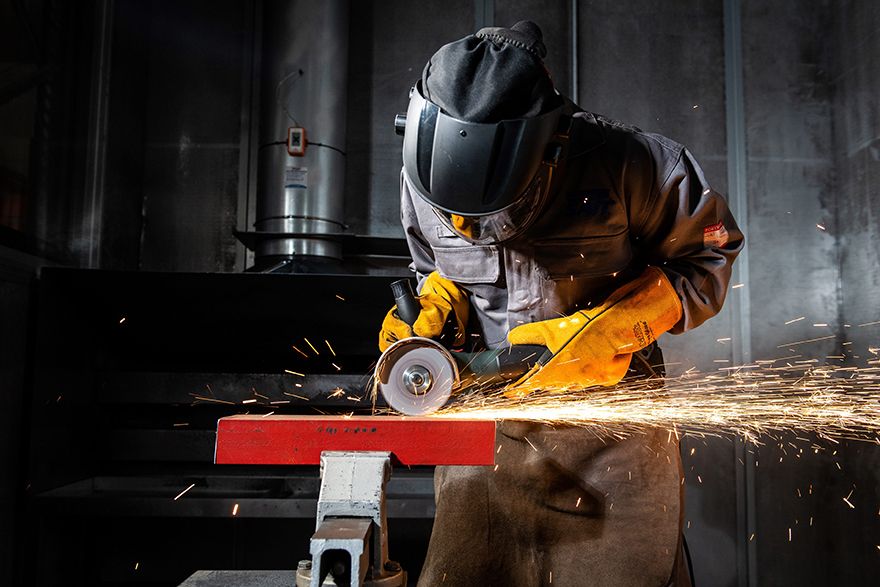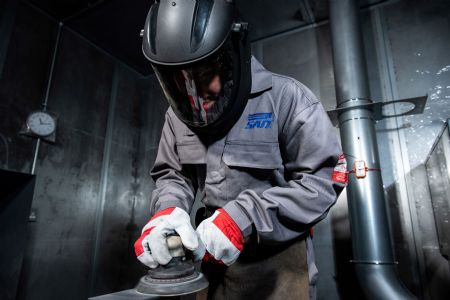
Almost half (47%) of those working in the UK metal industry say investing in upskilling is a priority for their business in the next 12 months, according to new research carried out on behalf of
SAIT Abrasives, a specialist manufacturer of rigid and flexible abrasives for industrial use.
SAIT wanted to understand the scale of training in the metal industry as it embarks on its latest training push. The survey revealed that over the next year, more than half of businesses in the sector will be investing in ongoing training (53%) and just less than half will access direct training from suppliers (40%).
Further to this, half of respondents (52%) said that their organisation provides enough training to help those entering the industry gain the skills they need to do the job efficiently, with almost two-fifths (37%) saying that their company employs apprentices.
Despite this two in five (43%) did admit that they are concerned that the industry as a whole is not doing enough to train new people entering the workforce and half (51%) said their organisation could be doing more to overcome the skills gap.
Chris Ingman, SAIT Abrasives managing director, said: “Our research shows that there is a real divide between the industry in those that will be prioritising training and upskilling, and those who are concerned that the industry is not doing enough to overcome the skills gap.
“Having started as an apprentice myself, this is a vital route into the market and a way for us to overcome skills shortages. It is great to see that many businesses do see the value in such schemes, but we as a sector need to make sure that there are more opportunities like this available and attractive to those considering our industry for their future career.”
Increased workplace productivitySAIT’s survey showed that more than a third (40%) of companies will look to suppliers to provide training in the coming year. When many suppliers are happy to support their customers, perhaps it is surprising that almost two thirds (60%) of the sector are not using this resource.

Mr Ingman continues: “We have seen much success with the training sessions we provide to our end-users. They get to see the most effective ways to use our products which ultimately leads to increased workplace productivity. Asking suppliers what they offer is a simple way to get ahead on training and support current employees.”
Andy Mills, managing director at
FEIN UK, a power tools specialist that is working with SAIT to provide surface finishing solutions to the metalworking industry, added: “There is room for suppliers to collaborate on training initiatives which can maximise the opportunities for end-users who want to upskill their workforce. Ultimately, collaboration across the supply chain can really help to improve efficiencies across core processes so businesses and their employees can benefit.”
Further to this, over half (53%) of respondents said that the training in their organisation is one of the reasons they like their job. A third (32%) said their company’s willingness to invest in training makes them feel valued by their employer.
Mr Ingman concluded: “These stats highlight the challenges that young talent is facing as they find a way into this industry. There are a number of brilliant schemes already in place but it is not enough. More must be done to encourage younger people to enter the sector, or we run the risk of being unable to keep up with demand. It is vital that businesses listen to current employees too, who see real value in training, and leverage this to overcome the skills gap, one of the biggest challenges the sector is currently facing.”
Read the full insights from the survey on SAIT UK’s blog
here.